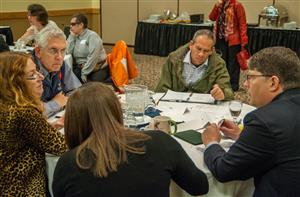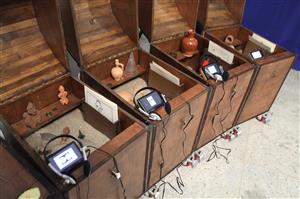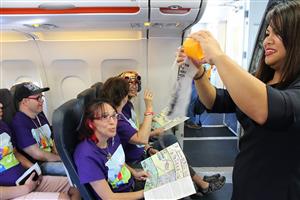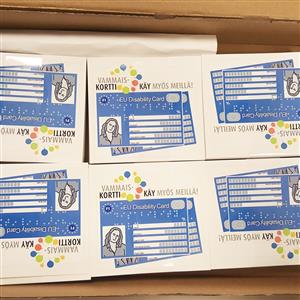Search Results
Search
Filter results
Advanced Filters
Your search returned 143 Solutions
-
The right to a personal assistance budget
The personal assistance budget (PAB) covers 100% of service costs, and enables individuals themselves to purchase self-directed personal assistance services from public and private entities. Notably, the policy has created a demand-driven market for personal assistance where providers compete for customers.
Swedish National Board of Health and Welfare, THE ACT CONCERNING SUPPORT AND SERVICE TO PERSONS WITH CERTAIN FUNCTIONAL IMPAIRMENTS & THE ASSISTANCE BENEFIT ACT, Sweden -
Wheelmap.org is an online map which indicates whether or not a location is wheelchair accessible. It works like Wikipedia – many people help to collect and update information about the accessibility of places in the city.
Wheelmap.org is available online and as an app. The information provided empowers persons with mobility impairments to plan their day more efficiently, increase their mobility and participate more easily in society. The data collected is also a tool to raise awareness and help build a more inclusive environment.
Social Heroes e.V., Interactive city map for wheelchair accessibility, Germany -
Improving the criminal justice system for people with intellectual disabilities
NCCJD’s Pathways to Justice programme offers training to develop local multidisciplinary Disability Response Teams composed of criminal justice and disability leaders, including self-advocates, to improve local systems. It is unique in addressing the needs of both victims and suspects, defendants and inmates.
The Arc's National Center on Criminal Justice and Disability, Pathways to Justice, United States of America -
Personal Ombudsmen Enhance Self-Determination
Personal ombudsmen (POs) assist individuals with psychosocial disabilities in taking control of their own situation. In 2017 the organization employed a self-determination coordinator (referred to as a BISAM) charged with working alongside POs in group homes; and in that year the POs served more than 600 people.
PO Skåne - Personal ombudsman in Skåne, Sweden -

An Accessibility Implementation Plan for Provincial Elections
The plan addresses four problematic areas that had been identified through focus groups and consultations: voting options, polling place accessibility, products and services at polling stations, voter information and public education. Solutions carried out include improved polling place accessibility or homebound voting.
Elections Saskatchewan, Canada -

Training museum professionals in the Western Balkans to improve access to their buildings, collections and activities for persons with disabilities and enabling positive participation while challenging negative stereotypes.
Training for professionals working in museums are at the heart of the project. A information and education program is also provided to raise awareness for the persons with disabilities. Children and adults are welcomed as visitors and take part in various activities which enable them to experience their cultural heritage.
Cultural Heritage without Borders, Communicating art in the Western Balkans, Sweden -
A business approach to sustainable community living
"Mustard Seed Communities" (MSC) facilitates the development of minimum assisted-living communities and provides employment for persons with disabilities by offering skills training and equipment. In 2015 MSC had 12 residential centres catering to some 400 children and adults with disabilities.
Digicel Foundation Jamaica, Jamaica -

An Airport Rehearsal Programme for People with Disabilities, Families and Staff
Wings for Autism allows people with autism and with intellectual disabilities, as well as their families, to practice all the steps involved in travelling by plane, and to do so in a safe environment. From 2014 to 2018, Wings for Autism has trained approximately 13,500 people, family members, as well as airport and airline personnel.
The Arc of the United States, Wings for Autism, United States of America -

A Disability Card to Support Equal Access
The European Union launched an "EU Disability Card" pilot in 2016, which is a universally recognized way for people with disabilities to communicate their needs and access support. Finland is participating in the pilot. Between June and October 2018, over 4,000 people with disabilities have requested the card in Finland.
KVPS - Service Foundation for People with Intellectual Disability, EU Disability Card Implementation, Finland -
MOBILE, an all-round support program
MOBILE is a network of support and assistance for persons with disabilities living out of institutions, including parents. Costs for assisted living are in most cases covered by the regional authorities. In 2015 MOBILE supported 195 people, including 13 families with parents who had intellectual disabilities and their 25 children.
Mobile - Independent Living of Disabled People e.V., Germany